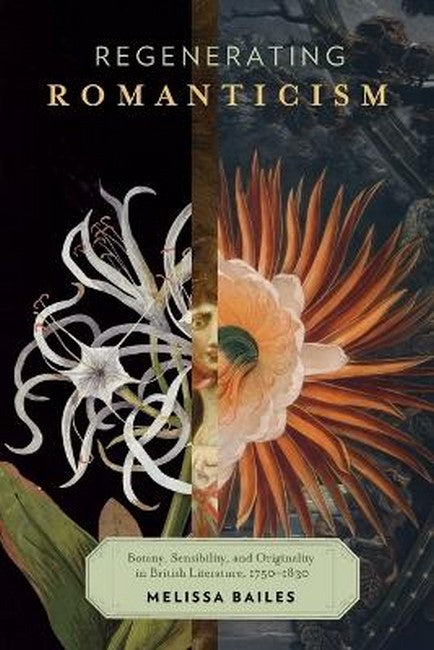Melissa Bailes is Associate Professor of English at Tulane University and the author of Questioning Nature: British Women's Scientific Writing and Literary Originality, 1750-1830 (Virginia).
Request Academic Copy
Please copy the ISBN for submitting review copy form
Description
Acknowledgments Introduction: Revealing the Strawman; or, the Historical Hoodwinking of Romanticism 1. Botany's Seasonal Disorder: Thomson's Progressive Time, Conjectural Histories, and the Backwardness of Spring 2. Linnaeus's Botanical Clocks: Chronobiological Mechanisms in the Scientific Poetry of Erasmus Darwin, Charlotte Smith, and Felicia Hemans 3. Transformations of Gender, Race, and Poetic Sensibility: Maria Riddell's Transatlantic Botany and Biopolitics 4. Cultivated for Consumption: Botany, Colonial Cannibalism, and National/Natural History in Sydney Owenson's The Wild Irish Girl 5. "On the green margin": Place, Sensibility, and Originality in Charlotte Smith's "Flora" 6. Botany and Madness: Anna Seward, Sensibility, and the Floral Insanities of Darwin, Cowper, Wordsworth, and Clare Conclusion: De Quincey, Hazlitt, Wordsworth, and the Critical Fate of Romanticism and Scientific Literature Notes Bibliography
Challenges one of the most commonly held misconceptions about the writing of the era--that the discourse of science became detached from sensibility and notions of originality over the course of the Romantic period . . . Regenerating Romanticism has much to offer anyone interested in the history and recuperation of women's writing in the Romantic period as well as those interested in the interrelation of science and literature during this time of experimentation and expansion in scientific discourse.-- "Eighteenth-Century Fiction" Melissa Bailes's Regenerating Romanticism: Botany, Sensibility, and Originality in British Literature, 1750-1830 (University of Virginia Press) makes a significant contribution to re-inscribing the importance of women writers and writers of colour in scientific literature that was appropriated by now-canonical "big six" male writers of the Romantic period. Bailes proposes a new way of looking at the interactions between literature and science that decentres this framework of competition and which restores the significant contribution made by these overlooked writers.-- "The British Society for Literature and Science" Regenerating Romanticism makes an important contribution to the ongoing work of expanding and reconsidering our understanding of Romantic-era literary history - and the establishment of what might be called a counter-canon - by detailing canonical male writers' successful efforts to recode sensibility so as to exclude women from literary recognition. --Elizabeth A. Bohls, University of Oregon, Author of Slavery and the Politics of Place: The Colonial Caribbean, 1770-1833

